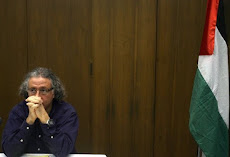"But while many of his contemporaries, including George Washington, freed their slaves*during and after the revolution — inspired, perhaps, by the words of
the Declaration — Jefferson did not. Over the subsequent 50 years, a
period of extraordinary public service, Jefferson remained the master of
Monticello, and a buyer and seller of human beings.
Rather than encouraging his countrymen to liberate their slaves, he
opposed both private manumission and public emancipation. Even at his
death, Jefferson failed to fulfill the promise of his rhetoric: his will emancipated only five slaves,
all relatives of his mistress Sally Hemings, and condemned nearly 200
others to the auction block. Even Hemings remained a slave, though her
children by Jefferson went free.
Nor was Jefferson a particularly kind master. He sometimes punished
slaves by selling them away from their families and friends, a
retaliation that was incomprehensibly cruel even at the time. A
proponent of humane criminal codes for whites, he advocated harsh,
almost barbaric, punishments for slaves and free blacks. Known for
expansive views of citizenship, he proposed legislation to make
emancipated blacks “outlaws” in America, the land of their birth.
Opposed to the idea of royal or noble blood, he proposed expelling from
Virginia the children of white women and black men.
Jefferson also dodged opportunities to undermine slavery or promote
racial equality. As a state legislator he blocked consideration of a law
that might have eventually ended slavery in the state.
As president he acquired the Louisiana Territory but did nothing to stop
the spread of slavery into that vast “empire of liberty.” Jefferson
told his neighbor Edward Coles not to emancipate his own slaves, because
free blacks were “pests in society” who were “as incapable as children
of taking care of themselves.” And while he wrote a friend that he sold
slaves only as punishment or to unite families, he sold at least 85
humans in a 10-year period to raise cash to buy wine, art and other
luxury goods.
Destroying families didn’t bother Jefferson, because he believed blacks
lacked basic human emotions. “Their griefs are transient,” he wrote, and their love lacked “a tender delicate mixture of sentiment and sensation.”
Jefferson claimed he had “never seen an elementary trait of painting or
sculpture” or poetry among blacks and argued that blacks’ ability to
“reason” was “much inferior” to whites’, while “in imagination they are
dull, tasteless, and anomalous.” He conceded that blacks were brave, but
this was because of “a want of fore-thought, which prevents their
seeing a danger till it be present.”
A scientist, Jefferson nevertheless speculated that blackness might come
“from the color of the blood” and concluded that blacks were “inferior
to the whites in the endowments of body and mind.”"
* Washington did not free his slaves. He ordered in his will that slaves be freed after the death of his wife. Of course, his wife immediately freed the slaves upon his death.








